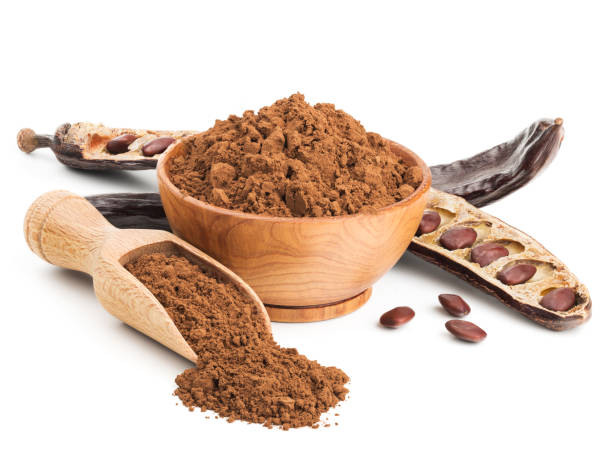Dawadawa, a condiment made from fermented African locust bean seeds, is used to season soups, stews, and sauces. The greatest quality of this is typically supplied in balls that may be stored for several months at a time. Today, it is also available as a powder and has demonstrated potential in enhancing cellular immunity.
In Ghana, dawadawa is known for its strong aroma created from the fermented seeds of the African locust bean tree (Parkia biglobosa). The tree reaches 7 to 30 meters with the tree’s locust beans, containing up to 30 seeds, typically 30 to 40 cm long. It is mostly seen in the Northern part of Ghana and some areas in the middle belt. Although the crop is mainly used by the local northerners, many Ghanaians to my knowledge, do not use dawadawa or know of its value.
At harvesting, a crook is used to remove seedpods from the trees. The dried seeds are sorted to remove any small stones before being used to make the dawadawa. The hard seed coat is next softened and separated by boiling the seeds. The seeds are then put into a mortar with wood ash, an abrasive, for pounding, after which, they are placed out to dry in the sun after several minutes of pounding. They are then washed once more to remove any remaining wood ash and seed coat.
Dawadawa elevates your dish and gives it the umami feeling that glides throughout and around your taste buds. Although, the smell and dense dark, black colour of Dawadawa might put you off. Numerous rice recipes, such as Jollof and braised rice, can be made using dawadawa.
Dawadawa Jollof is typically preferred and mostly made in Ghana’s northern regions. Because dawadawa is present, rice has a delicious flavour and is extremely high in protein, which is important for bones, muscles, and the body’s overall health. Among the others,
Dawadawa can be used to make tea, and this tea is frequently referred to as dawadawa tea. There are no additional chemicals or preservatives in this tea. Dawadawa tea is beneficial for several conditions, including stroke, heart disease, hypertension, and eyesight issues.
The African locust bean tree can be used in a variety of ways and is edible from root to fruit. Boiled pods are used to dye pottery black, while the tannin-rich bark is used to tan hides. In addition to being a fantastic food flavour, dawadawa has a myriad of nutritional qualities and health advantages.
Dawadawa can help regulate blood pressure when eaten in the right amount. Additionally, it reduces arterial blood pressure, and better eyesight, especially for those who suffer from myopia, cataracts, or other eye conditions.
Consuming dawadawa helps to improve digestion, lower cholesterol, treat diarrhoea, help maintain a healthy weight, lower fever, and help regulate blood sugar levels. These fermented seeds (dawadawa) are strongly recommended for communities whose diets lack proteins and vitamin B.
It is time to explore local ingredients in the country and help smallholder farmers grow. The locust bean tree is threatened by deforestation and land degradation since the trees are often used for firewood. When this occurs, the value of the tree to local farmers is expected to drop, which could lead to its extinction in Ghana. Consume dawadawa today and join the healthy revolution.

